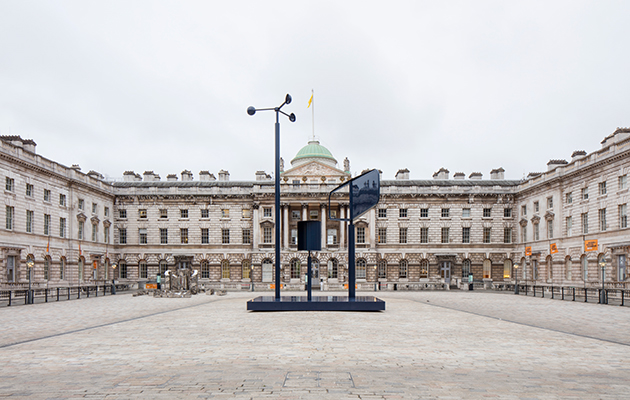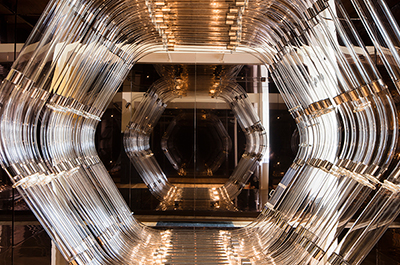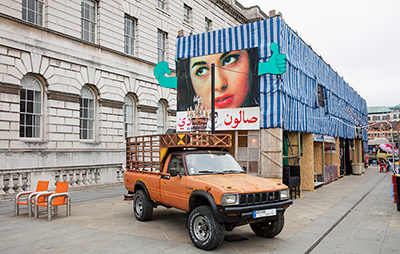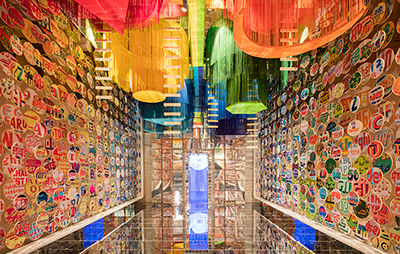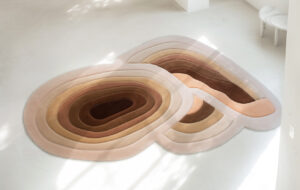|
|
||
|
The biennale’s director Christopher Turner explains the thinking behind next year’s theme: Emotional States ‘Emotional States’ has been announced as the theme for next year’s London Design Biennale. The second edition of the event, which will take place at Somerset House from 4 to 23 September 2018, will feature displays by more than 40 countries, exploring the relationship between design, emotion and social needs. Christopher Turner, the biennale’s director, told us more. Why did you choose the theme Emotional States? Design is such an exciting lens through which to look at the world, and we hope the theme will inspire a diverse, global commentary on our emotionally turbulent times. Politicians are increasingly seeing positive emotions as important measures of wellbeing. In 2012, the UN called on member states to place more emphasis on happiness, rather than GDP and economic indicators, as a measure of social progress and to guide public policy. In response, Venezuela appointed a vice minister of supreme social happiness – which sounds like something from Brave New World – and Ecuador a state secretary of ‘buenvivir’ (‘well-being’). Last year, the United Arab Emirates also appointed a minister of happiness, and this February hosted a ‘world happiness summit’. It’s something the UK has taken on board too and, under David Cameron, the Office of National Statistics launched their own surveys to test levels of wellbeing. I wondered what role design might have in these debates about wellbeing, but also how architects and designers might look at the negative emotions that divide us.
How many countries will you have for the second edition? We had 37 countries last year, from six continents, filling the entirety of Somerset House. Some of the best museums and design institutes took part, including the V&A, MAK, Japan Foundation, Triennale Museum, Moscow Design Museum and Cooper Hewitt, Smithsonian – it was an amazing turnout, and a great canvas for curatorial experimentation. This year we hope for over 40 countries and territories, and to add some new ones, such as Guatemala, Iran, Jordan, Bangladesh, Rwanda and Morocco. We’re particularly trying to increase the depth of participation in South America, the Middle East and Africa. Next week I’m going to speak at African Design Days, and participate in meetings with curators and designers from that continent who are keen to represent their countries and take part. This diversity is really important, and entrants are encouraged to explore their own design stories in their installations. Ideas are already coming in thick and fast, from VR to community activism, and it promises to be a very thought-provoking, innovative and immersive exhibition.
How important was Brexit to the choice of theme? There was obviously some navel-gazing after the referendum, but the signs were there before, and obviously it’s still is a very emotive issue. Today Gallup release their Global Emotions Report, the result of almost 150,000 interviews in 142 countries, which finds that the percentage of people who considered their life to be ‘thriving’ in the UK fell 15% in the two years leading up to Brexit – one of the biggest drops they’ve ever recorded and a clear indication of the atmosphere of discontent. An astounding 29% of those polled said they’d like to move to another country. The UK is way down the list in the rankings of positive experiences, at 38th. It’s Paraguay, Costa Rica and Latin American countries that lead because they place more emphasis on social and family networks. When borders are threatening to close down, we hope that the biennale will send out a different message, welcoming the world to London.
Apart from happiness or wellbeing, what other emotions will be explored in the exhibition? The full spectrum: We like to think architecture and design is making the world better all the time, but design produces many anxieties too. For every invention that solves a problem, another ethical quandary opens up. As Adam Greenfield shows in his terrifying and insightful new book, Radical Technologies, smartphones, augmented-reality interfaces, the internet of things, autonomous delivery drones and self-driving cars render us porous and transparent at all times. He asks if such intrusive technology might possibly be renounced, resisted, or even just made slightly more congenial? Design is at the crux of these emotive questions of artificial intelligence, privacy, sustainability, inequality, waste and even our survival as a species. The London Design Biennale will present radical and provocative ideas from China to Australia, Latvia to Argentina, that explore such important issues. Together they will present an exciting laboratory of ideas that will investigate the important relationship between design, strong emotional responses and real social needs. Christopher Turner is director of the London Design Biennale (4-23 September 2018 at Somerset House) |
Images: Ed Reeves |
|
|
||

